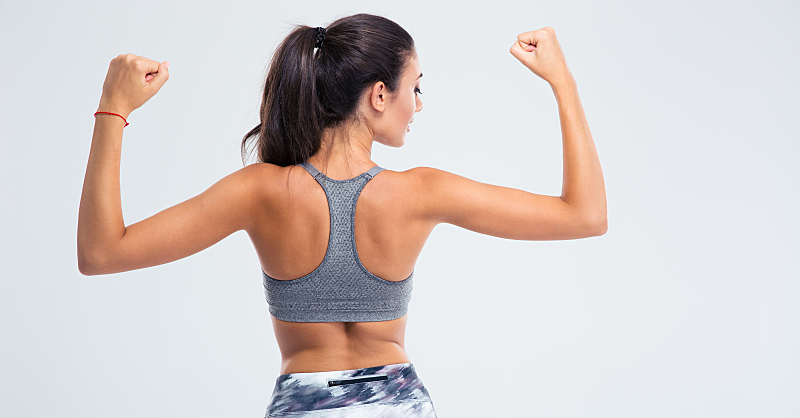By Aditi Maheshwari
Haircare is one of the top priorities for women no matter from which part of the world they belong. However, hair maintenance can be a hurdle for some African women when it comes to fitness.
Haircare routines aren’t a barrier for every African American woman, said study leader Dr. Sophia Tolliver, “but they are for a significant enough number.” Creating a hairstyle “could take several hours during the day,” Tolliver said.
African women may therefore choose to skip vigorous workouts, fearing it will ruin their hair which takes few hours to style, or expensive straightening treatment, etc. However, physical activity is one of the major fitness routines apart from having nutritive food, or proper sleep schedules, hence can’t be treated secondary in life. Being physically active avoids stress, produces dopamine and reduces ill health, helps shape your body, and also keeps the mind active, so it’s important for women to prioritize their fitness regime along with hair care.
For those who feel their hair has gotten oily or dirty from exercising, “there are dry shampoos,” said Dr. Angela J. Lamb, an associate professor of dermatology at the Icahn School of Medicine at Mount Sinai in New York. “I wrap mine with a satin scarf,” she said. “It’s all about finding what is practical, what is presentable, and what allows you to be physically active.”
Lead author Amy McMichael, M.D., suggested “Fitness programs can also be scheduled to include more strenuous exercises at the time when hair washing is eminent.”
Swimming simply for exercise was never a choice for African women and the one reason being hair care. To liberate women from the guilty pressure of skipping the gym and workout sessions, it’s advisable to take necessary precautions for safe hair maintenance while keeping fitness a priority. Using spandex swim caps can prove to be comfortable but not waterproof. So, saturating your hair with water and deep conditioner to avoid chlorine damage before entering the pool, then after swimming immediately wash everything out and apply coconut oil before braiding or twisting your hair and finally letting it air-dry can help you enjoy the best of all. You will no longer require to sacrifice your desire to participate in swimming or any other form of physical activity or compromise with your hairstyle and attractive looks. You naturally feel liberated when you know how to balance hairstyling with a proper fitness regime. You can have the best of both worlds without compromise.
The fear of sweating can finally be addressed in the most meaningful ways enabling you to incorporate intense exercise as part of your routine activities or lifestyle. Don’t let unfamiliarity be the cause of concern; equip yourself with informed choices for the best results. Use dry shampoo by applying it directly onto roots before your workout to absorb sweat and oils or lightly spray your scalp after exercise with olive oil, or shea butter spray, to rejuvenate hair, feel fresh, and smell good. Applying conditioners can prove to be beneficial. Itching problems can be attended to by treating underlying scalp problems by consulting a dermatologist. You can also try sporting a bun or a low ponytail by applying gels and hairspray’s (shine-spray or not is a personal choice) to avoid messy hair, also textured hair is great for holding a braid or cornrow. This helps you be physically active and avoid wasted gym memberships for good along with having an attractive hair look.
Titi Branch, co-founder of the luxury hair care line Miss Jessie’s (Alicia Keys and Holly Robinson Peete are fans), says that if African-American women learn to manage their hair without chemical relaxers, they’ll have the freedom to exercise whenever they please. She further said, to try her “wash and go styling” technique: Wash and condition hair, apply a styling aid made for curly hair, and blow-dry using a diffuser to fight frizz.
Many African women above teenage, are obese and have enhanced chances to experience heart disease, diabetes, and stroke, to avoid such dire consequences, it’s important to engulf them into physical fitness activities while safeguarding the unique cultural practices without compromising health. Also, gifting people the freedom to participate in sports and fitness activities without making any sacrifices concerning hair or skin.
“Oftentimes you get women saying, ‘I can’t exercise today because I don’t want to sweat my hair back or get my hair wet,'” Dr. Regina Benjamin, who is African American, said. “When you’re starting to exercise, you look for reasons not to, and sometimes the hair is one of those reasons.”
“Many people kind of laughed at her, but not black women,” says Dr. Fatima Cody Stanford, an assistant professor at Harvard Medical School and an obesity specialist at Massachusetts General Hospital.





Comments are closed.